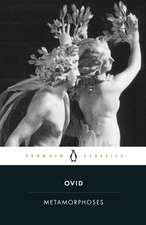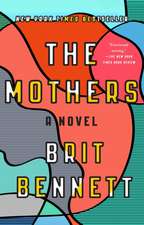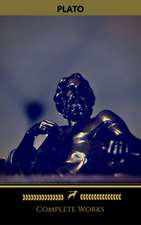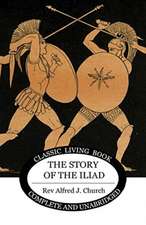The Aeneid
Autor Virgil Traducere de Scott Mcgill, Susannah Wrighten Limba Engleză Hardback – 12 aug 2025
| Toate formatele și edițiile | Preț | Express |
|---|---|---|
| Paperback (39) | 26.01 lei 3-5 săpt. | +5.97 lei 5-11 zile |
| Wordsworth Editions – 31 iul 1995 | 26.01 lei 3-5 săpt. | +5.97 lei 5-11 zile |
| Oxford University Press – 10 iul 2008 | 56.08 lei 10-16 zile | +23.99 lei 5-11 zile |
| Arcturus Publishing – 31 mai 2022 | 58.64 lei 3-5 săpt. | +13.59 lei 5-11 zile |
| Penguin Books – 29 mar 2006 | 59.14 lei 24-30 zile | +22.09 lei 5-11 zile |
| Oxford University Press – 11 sep 2008 | 65.64 lei 10-16 zile | +25.95 lei 5-11 zile |
| Penguin Books – 26 mar 2003 | 70.35 lei 3-5 săpt. | +11.78 lei 5-11 zile |
| CREATESPACE – | 76.21 lei 3-5 săpt. | |
| Penguin Books – 31 mar 2010 | 85.03 lei 24-30 zile | +37.47 lei 5-11 zile |
| CreateSpace Independent Publishing Platform – | 85.73 lei 3-5 săpt. | |
| CreateSpace Independent Publishing Platform – | 91.46 lei 3-5 săpt. | |
| Penguin Books – 4 iul 2012 | 95.38 lei 3-5 săpt. | +14.01 lei 5-11 zile |
| Vintage Books USA – 31 mai 1990 | 95.68 lei 3-5 săpt. | |
| – | 98.67 lei 3-5 săpt. | |
| CREATESPACE – | 102.71 lei 3-5 săpt. | |
| Mint Editions – apr 2021 | 104.30 lei 3-5 săpt. | |
| CreateSpace Independent Publishing Platform – | 108.18 lei 3-5 săpt. | |
| Hackett Publishing Company – 15 mar 2005 | 108.56 lei 3-5 săpt. | +22.27 lei 5-11 zile |
| Bottom of the Hill Publishing – 30 sep 2011 | 110.40 lei 3-5 săpt. | |
| CreateSpace Independent Publishing Platform – | 110.58 lei 3-5 săpt. | |
| CreateSpace Independent Publishing Platform – | 111.83 lei 3-5 săpt. | |
| CREATESPACE – | 120.18 lei 3-5 săpt. | |
| University of Chicago Press – 8 feb 2022 | 131.18 lei 3-5 săpt. | +36.04 lei 5-11 zile |
| CREATESPACE – | 150.68 lei 3-5 săpt. | |
| Shearsman Books – 2 iun 2023 | 205.08 lei 3-5 săpt. | |
| Lulu.Com – 7 apr 2017 | 89.31 lei 6-8 săpt. | |
| Digireads.com – apr 2019 | 107.82 lei 6-8 săpt. | |
| – | 111.21 lei 6-8 săpt. | |
| Quid Pro, LLC – 31 dec 2010 | 122.22 lei 6-8 săpt. | |
| Bottom of the Hill Publishing – 30 noi 2013 | 124.48 lei 6-8 săpt. | |
| SC Active Business Development SRL – 28 apr 2017 | 133.75 lei 38-44 zile | |
| NuVision Publications – 24 apr 2007 | 136.92 lei 38-44 zile | |
| Simon & Brown – 6 noi 2018 | 150.30 lei 38-44 zile | |
| COSIMO CLASSICS – 31 ian 2010 | 153.27 lei 6-8 săpt. | |
| Lulu.Com – 11 aug 2017 | 156.72 lei 6-8 săpt. | |
| Echo Library – 31 iul 2006 | 158.06 lei 38-44 zile | |
| CreateSpace Independent Publishing Platform – | 177.20 lei 6-8 săpt. | |
| Devoted Publishing – 10 aug 2017 | 182.16 lei 6-8 săpt. | |
| Impala – 31 oct 2006 | 191.33 lei 6-8 săpt. | |
| Girvin Press – 15 noi 2007 | 243.19 lei 38-44 zile | |
| Hardback (12) | 46.63 lei 3-5 săpt. | +29.99 lei 5-11 zile |
| Pan Macmillan – apr 2020 | 46.63 lei 3-5 săpt. | +29.99 lei 5-11 zile |
| EVERYMAN – 4 iun 1992 | 84.53 lei 24-30 zile | +36.61 lei 5-11 zile |
| Penguin Books – 4 noi 2020 | 92.88 lei 24-30 zile | +36.60 lei 5-11 zile |
| Mint Editions – 20 apr 2021 | 158.00 lei 3-5 săpt. | |
| Hackett Publishing Company – 15 mar 2005 | 276.64 lei 3-5 săpt. | |
| University of Chicago Press – 29 sep 2017 | 289.07 lei 3-5 săpt. | |
| Simon & Brown – 5 noi 2018 | 200.77 lei 38-44 zile | |
| Lulu.Com – 7 apr 2017 | 207.85 lei 6-8 săpt. | |
| Simon & Brown – 20 noi 2018 | 218.04 lei 38-44 zile | |
| Quid Pro, LLC – 18 dec 2010 | 218.17 lei 6-8 săpt. | |
| Devoted Publishing – 28 noi 2016 | 257.57 lei 6-8 săpt. | +46.35 lei 5-11 zile |
| COSIMO CLASSICS – 31 ian 2010 | 259.39 lei 6-8 săpt. |
Preț: 237.52 lei
Nou
Puncte Express: 356
Preț estimativ în valută:
45.46€ • 47.28$ • 37.53£
45.46€ • 47.28$ • 37.53£
Carte nepublicată încă
Doresc să fiu notificat când acest titlu va fi disponibil:
Se trimite...
Preluare comenzi: 021 569.72.76
Specificații
ISBN-13: 9781324096436
ISBN-10: 1324096438
Pagini: 480
Dimensiuni: 156 x 235 mm
Editura: Liveright Publishing Corporation
ISBN-10: 1324096438
Pagini: 480
Dimensiuni: 156 x 235 mm
Editura: Liveright Publishing Corporation
Textul de pe ultima copertă
This book is the equal of its great Homeric predecessors, The Iliad and The Odyssey, in dramatic and narrative power, and it surpasses them in the intense sympathy which makes events such as the passion and destruction of Dido and the fall of Turnus among the most memorable in literature.
Recenzii
"A marvel throughout. . . . The advantages of Ferry's version seem obvious to me: regularity of meter, clarity of image, simplicity of language, understatement of the horrific. Throughout, Ferry maintains a coolness even amid the most terrible drama. It is as if he were writing not in our still-Romantic (even if post-Romantic) personal vein, but altogether in another mode: a classical, fatalistic one, to be sure, but also one in which emotion and achievement matter communally."
"The shining merit of his version is a kind of transparency: somehow he has managed without losing tone, to efface himself, so that as slight a barrier as possible is put between the reader and a poem from another and distant world. . . . Ferry's is now the best modern version of the Aeneid, both for its loyalty to the original and for its naturalness to itself. . . . This translation has a youthful suppleness and flexibility."
"Ferry more than succeeds in capturing the stateliness, as his rendering of the Proem, the epic’s introductory lines, into English blank verse shows . . . . Ferry's creamily elegant rendering of the epic, which tries to 'correct' the text’s oddness, is likely to leave you wondering why critics both ancient and modern have scratched their heads over Virgil’s verse . . ."
"Ferry's Aeneid can be read with excitement and pleasure."
"Do we need, in 2017, another version of the Aeneid? . . . If it comes from the hand of David Ferry, one of America’s few great working nonagenarian poets, the answer is a resounding yes."
". . . . sanguine and accessible. The lines are animated by a poet’s grace and rhythm. Beyond the beauty of the language, the epic remains timely, detailing the grave cost of empire. 'Every act of translation is an act of interpretation,' writes Ferry in an opening note, and this new take is a welcome one."
"An extraordinary new translation of Virgil's classic."
“National Book Award–winning poet and translator Ferry takes up the Aeneid with engaging results. . . . An elegant and fluent version highly recommended for serious general readers.”
"Ferry's Aeneid has many strengths. He avoids over-the-top images not fairly located in the text, and sticks close to the prose translations he cites in his introductory comments. He also tries to include everything of significance in the original, avoiding egregious cuts made to improve the aesthetics of a line or the narrative flow. The language and syntax are generally straightforward, and it is easy to imagine using this translation in a classroom."
"Though elegant, The Aeneid is also rough, then, and elegance and roughness abound in Ferry’s completion of his work with Virgil. . . . The Aeneid is entirely distinctive, of personal and literary rather than popular and oral origins, a cornerstone of not just culture but also of calculated art. Ferry conveys its power even more than its majesty."
"From the long view and vantage of his own advanced age, Ferry has crafted an Aeneid not so much 'for the ages' (one never knows if that might be), but rather from and of our age in a manner not merely contemporary, but contemporaneous in spirit to what Virgil knew of war then, and remarkably what it still entails two millennia later. This not only enlivens for us a great classical poem, it also allows us to see our world as still classical in its demise and answering demeanor, no matter the drones that hover above. Loss, courage, blind rage, catastrophe, and chaos are the stuff of any age; David Ferry has held a finely polished mirror up to our own."
"Ferry's version gains by its simplicity of language. . . . In Ferry's version, there’s a notable balance of an eloquent sensibility and a narrative simplicity—both of which Virgil’s epic demands, often simultaneously."
"Ferry’s chosen 'instrument,' as he calls it in his note on meter—a rough pentameter most of the time, and iambic by preference—is by turns subtle, flexible, and strong. . . . the poem has cumulative power"
"David Ferry’s translation serves Virgil as no other modern translation I know. . . . To read Ferry’s translation with loving kindness is to read a poet thinking about the poem he is translating while also producing a beautiful poem that stands, not as a substitute for Virgil, but as a genuine poem in its own right."
"An outstanding achievement."
"Ferry's rendition of The Aeneid has allowed me to look at this epic with fresh eyes and as a result has given me a new enthusiasm and excitement for The Aeneid which I never thought would be possible . . . At an age when most literary and academic careers are winding down, Ferry has done his very best and most ambitious work."
"David Ferry’s new translation from the University of Chicago Press transported me back to what it was like reading [the Aeneid] for the first time. . . . Ferry’s translation of the Aeneid beautifully captures the world and morals that so inspired me years ago. His work has the rare effect of actually capturing the reader away."
"This is an astonishing bit of translation that typifies the level of Ferry’s sensibility and craft."
"Designed for the reader with no Latin who yet wishes to engage with the Aeneid."
"What stands out most is Ferry’s effective use of repetition just as Virgil did, resulting in some exciting new possible interpretations."
Notă biografică
Virgil (70 B.C-19 B.C) is regarded as the greatest Roman poet, known for his epic, "The Aeneid"(written about 29 B.C. unfinished). Virgil was born on October 15, 70 B.C., in a small village near Mantua in Northern Italy. He attended school at Cremona and Milan, and then went to Rome, where he studied mathematics, medicine and rhetoric, and completed his studies in Naples. Between 42 and 37 B.C. Virgil composed pastoral poems known as "Ecologues," and spent years on the "Georgics."At the urging of Augustus Caesar, Virgil began to write "The Aeneid," a poem of the glory of Rome under Caesars rule. Virgil devoted the remaining time of his life, from 30 to 19 B.C., to the composition of "The Aeneid," the national epic of Rome and to glory of the Empire. The poet died in 19 B.C of a fever he contracted on his visit to Greece with the Emperor. It is said that the poet had instructed his executor Varius to destroy "The Aeneid," but Augustus ordered Varius to ignore this request, and the poem was published.
Cuprins
The AeneidAcknowledgements
Introduction
Introduction
The Aeneid
One: The Trojans reach Carthage
Two: Aeneas' Narration—The Sack of Troy
Three: Aeneas' Narration continued-His Travels
Four: The Tragedy of Dido
Five: The Funeral Games
Six: The Visit to the Underworld
Seven: War in Latium
Eight: The Site of the Future Rome
Nine: Siege of the Trojan Camp
Ten: The Relief and Pitched Battle
Eleven: Councils of War: Pitched Battle Again
Twelve: Decision: the Death of Turnus
List of Variations from the Oxford Text
Glossary of Names
Select Bibliography
Maps
Genealogical Table of the Royal House of Troy and Greece




























